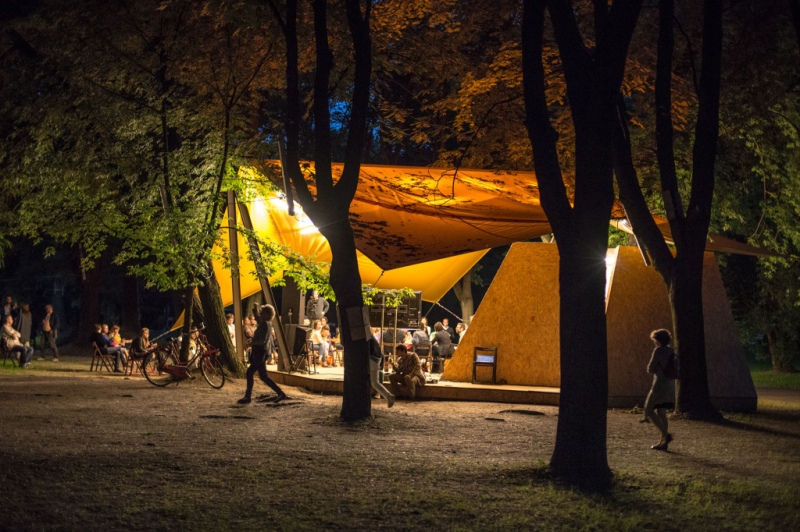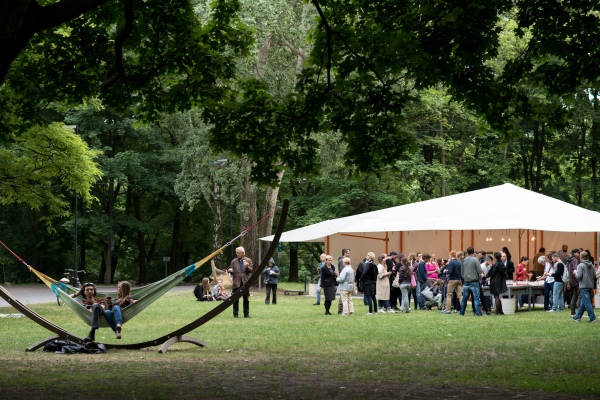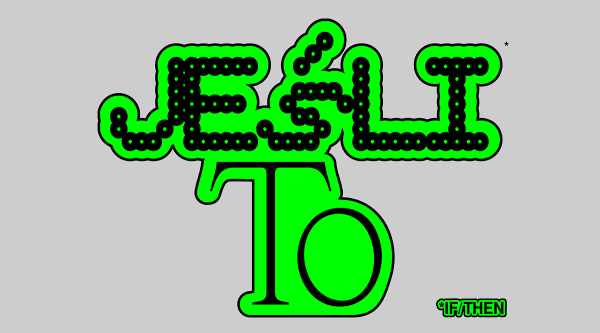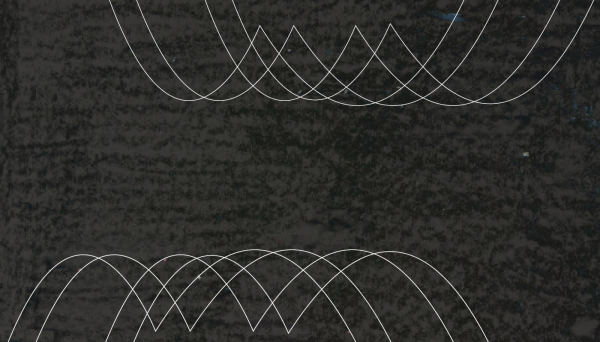Jazdów Archipelago
Jazdów – an oasis of greenery in the centre of the city – is an extraordinary place. This stretch of the Warsaw Escarpment, running parallel to the Vistula River, is the highest. The history of Jazdów, dating back to the twelfth century, is older than the history of Warsaw itself. During World War II, soldiers defending the city were brought to the Ujazdowski Hospital to recover from various wounds and injuries. At the time of the occupation, the interior of the Ujazdowski Castle had been burnt completely, with only the main walls remaining, which were demolished in 1954 and rebuilt twenty years later. The construction of the Finnish Housing Estates – a gift from the Soviet Union – commenced in the spring of 1945. The former pavilions of the Ujazdowski Hospital housed the Capital Reconstruction Bureau, crucial for post-war Warsaw. Jazdów is also a unique space, as it is filled with great social and cultural potential. The residents of the endangered Finnish Housing Estates, as well as urban activists, fought shoulder to shoulder in its defense, who along with many grassroots organizations formed the Open Jazdów community. Cultural institutions have been flourishing here, such as the Theatre Institute and the Ujazdowski Castle Centre for Contemporary Art, which have been implementing summer projects in the verdant space of Jazdów for several years.
The exceptional location of the Castle on Jazdów, and the network of connections with the most immediate neighborhood, is the starting point of a new edition of a summer project from the Ujazdowski Castle Centre for Contemporary Art, entitled this year as JAZDÓW ARCHIPELAGO. In the course of twelve weekends, together with artists and with the active involvement of participants, a cultural and social map of Jazdów will be created. The key to the space’s collective exploration and open educational-artistic activities will be listening to voices, histories, and tales.
The various dimensions of the space (social, architectural, historical, landscape, natural, and even sound) will blend together on the map. Together with the Design Group Centrala and invited guides, participants will have the opportunity to explore and jointly create new trails in Jazdów. Located on a table in front of the Centre for Contemporary Art will be a model – Perspective Research Model of Jazdów – on which before each walk, the thematic directions of the trail will be marked.
Leading us to the green square, whose centre is marked by the Ujazdowski Castle, is 0.5 km of color – a succession placed on the railing along the Szpitala Ujazdowskiego Avenue by artistic duo Justyna Wencel and Marcin Chomicki. The colorful indicator will guide through the footbridge over Łazienkowska Road, in the direction of the Finnish Housing Estates, where the initiative Open Jazdów is operating actively. This will constitute a symbolic sign of the connection of the east and west parts of Ujazdów, which accounted for one space before the construction of the road.
The starting point for the exploration of the natural map of Jazdów will be a garden of migrant plants, created by Grzegorz Różański in the cistern, a former water reservoir of the Ujazdowski Hospital, revitalized by the Japanese artist Tadashi Kawamata. This interesting implementation, on the fringes of art and science, will give way to a broad discussion on the topic of global migration processes and the status of the migrant in contemporary reality.
A container will be placed in front of the Castle, in which water coming from different sources throughout Warsaw will be mixed. It will be built by the Swiss artist duo Michael Meier & Christoph Franz, and inspired by the architecture and history of Warsaw’s Oligocene wells. A masonry oven will be activated, which until now, has been hidden in the green space around the Castle. Artist Paweł Kruk, together with the residents and visitors of Jazdów, will use the masonry oven to bake bread. There will also be a great opportunity to listen to various voices and languages - also to those without sound, such as the deafblind alphabet, which could be learned during Lorm Alphabet workshops.
A very important dimension of a city’s landscape is its audiosphere. Participants will explore the acoustics of Jazdów during plays and meetings organized by GOREktyw and Pracownię Pejzażu Dźwiękowego (Soundscape Research Studio). Residents of the project Sound of Culture – Culture of Sound will lead workshops on designing the acoustic space of the city and creating innovations with the use of electronic sounds.
The collectively created borders of Jazdów will go beyond the boundaries of its green space into the very centre of the city – to a new Centre for Contemporary Art locale on 9/15 Marszałkowska Street. Together with residents during her stay in Warsaw, Maja Bekan, an artist from the former Yugoslavia who now lives in the Netherlands, will work on the screenplay of a film about the lost sculpture of Alfons Karny, which once graced Oleandrów Square in Warsaw.
As a fundamental part of any summer project, Jazdów Archipelago will also make room for cinema. Film screenings will be held under the slogan "City, action!," at the locale on Marszałkowska Street. The repertoire, prepared by the City is Ours Society, will feature films about local grassroots initiatives in Poland as well as in the world. The Ujazdowski Castle Centre for Contemporary Art Library will act as a respite from the hustle and bustle of the city, wherein a series of six meetings co-organized by the Bęc Zmiana Foundation will take place. Each of them will be dedicated to a selected work from the Collection of Public Art of the Capital City of Warsaw. A talk with the author and invited guests will lead to broader discussions with the public. Lovers of literature will be pleased to know of the series Archipelago of Literature – literary breakfasts conducted by Natalia Malek. Keeping in mind our youngest guests, Teatranki (theatre workshops for children organized by the Theatre Institute) is returning in this summer edition. The Ujazdowski Caste Centre for Contemporary Art Laboratory of Creative Education (Maria Parczewska, Janusz Byszewski, Zbyszek Gozdecki) invites participants to meetings with art and to the art of meetings. Also, numerous outdoor movement workshops will be held, which will be conducted by Paulina Święcańska.
By exploring the various aspects of Jazdów, collaboration with the neighbors as well as entire public, we want to extract the cultural potential inherent in the act of participation. The project also asks about the social reach and resonance of cultural institutions, about the limits of its openness, as well as the effectiveness of art itself and the methods employed within it.




